In today’s fast-paced world, the items we use in our daily lives are more than just tools; they are reflections of our values and the standards we hold dear. One such category is kitchenware, which plays a pivotal role in our culinary experiences. As we delve into the intricacies of kitchenware, we often find ourselves asking: what truly defines quality? And how does the assurance of a product’s integrity contribute to our satisfaction? These questions lead us to explore the significance of certifications like BSCI and their impact on the kitchenware industry.
The Importance of Kitchenware Quality
In the heart of every kitchen lies the essence of culinary creation, and at the core of this essence is the quality of the kitchenware itself. From the pans we fry in to the dishes we serve on, the choice of kitchenware can greatly impact the taste, safety, and overall experience of cooking and dining. Here’s why the quality of kitchenware is paramount.
The first thing to consider is the durability of the materials. High-quality kitchenware is often crafted from stainless steel, glass, or ceramic, which are not only resistant to wear and tear but also non-reactive, ensuring that your food retains its natural flavors and nutrients. Inferior materials, on the other hand, can lead to discoloration, warping, and even leaching of harmful chemicals into your meals.
Functionality is another critical aspect. A well-designed kitchen tool can make cooking a breeze, while a poorly designed one can be a source of frustration. For example, a good set of knives should have sharp blades that stay sharp for a long time, ergonomic handles for comfortable grip, and a balance that makes them easy to handle. The same goes for pots and pans; they should have sturdy handles, even heat distribution, and the right size to fit your needs.
Safety is a non-negotiable when it comes to kitchenware. High-quality cookware is free from lead, cadmium, and other harmful substances that can leach into food. It’s also less likely to crack, chip, or break, which can lead to accidents in the kitchen. When you invest in safe kitchenware, you’re not just protecting your health, but also the health of your loved ones.
In terms of aesthetics, high-quality kitchenware can elevate the look of your kitchen. A sleek, well-crafted set of dishes or a set of beautifully glazed ceramic pots can serve as both a functional and decorative element. It’s not just about the food that comes out of your kitchen; it’s also about the experience of cooking and the enjoyment of the space itself.
The environmental impact of kitchenware is also a growing concern. Durable, long-lasting items reduce the need for frequent replacements, thereby cutting down on waste. By choosing kitchenware that is made from sustainable materials and is designed to be recycled or composted at the end of its life, you’re making a positive contribution to the environment.
Moreover, investing in high-quality kitchenware can save you money in the long run. While it might seem expensive upfront, cheap kitchenware often needs to be replaced more frequently due to poor durability. This means that over time, the cost of buying and replacing low-quality items can actually add up, making high-quality kitchenware a more economical choice.
The quality of kitchenware also extends to the manufacturing process. Products that undergo rigorous quality control checks and are certified by organizations like BSCI (Business Social Compliance Initiative) are more likely to meet the highest standards. These certifications ensure that the factory workers are treated fairly, the working conditions are safe, and the production process is environmentally responsible.
Lastly, the pleasure of cooking is greatly enhanced by the right tools. When you have a well-equipped kitchen with high-quality items, the act of cooking becomes a joy rather than a chore. It’s the satisfaction of knowing that you’ve prepared a meal with the best possible tools, and the anticipation of sharing that meal with friends and family.
In conclusion, the importance of kitchenware quality cannot be overstated. It affects everything from the taste and safety of your food to the aesthetics of your kitchen and the environmental impact of your consumption habits. So, the next time you’re shopping for kitchenware, remember that the quality of the tools you choose can have a lasting impact on your cooking experience.
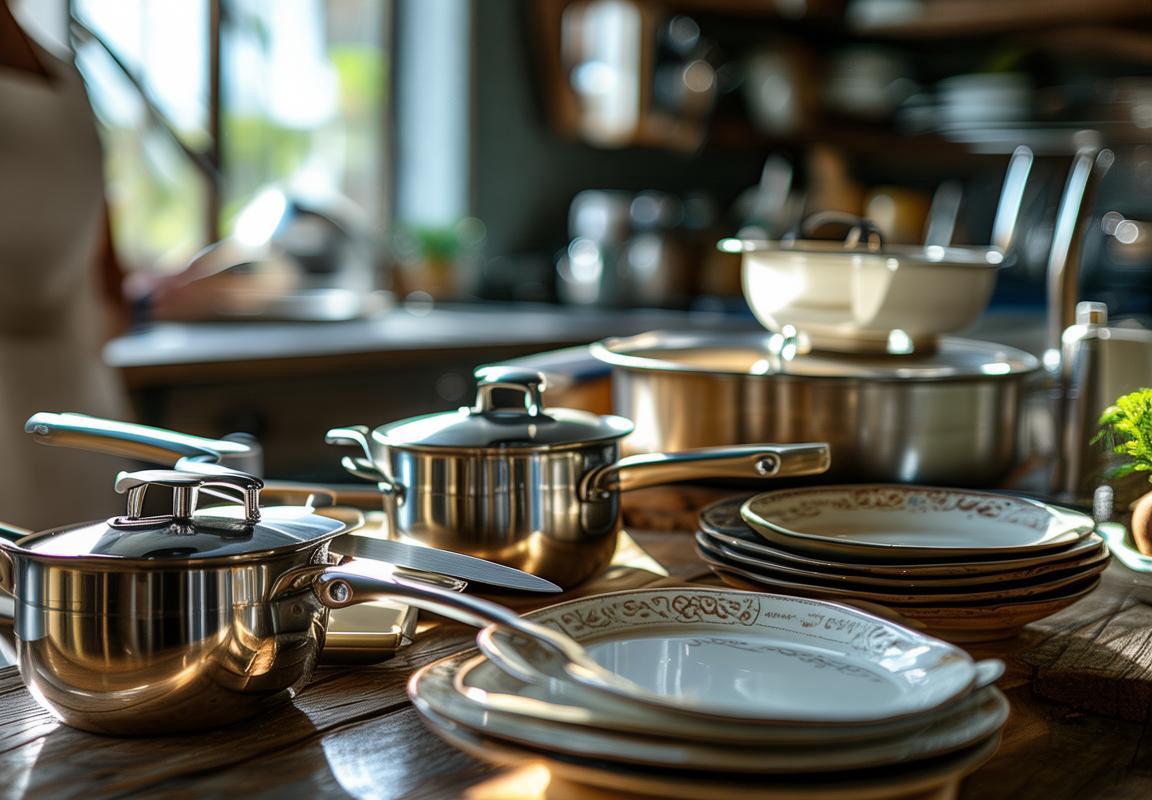
What is BSCI?
BSCI, or the Business Social Compliance Initiative, is a comprehensive and rigorous program designed to ensure that factories producing goods for global markets adhere to socially responsible practices. It’s a collaboration between over 1500 retailers, brands, and civil society organizations. Here’s a closer look at what BSCI entails and why it’s significant:
-
Global Reach and CollaborationBSCI is a multi-stakeholder initiative, bringing together various entities from different corners of the globe. This collaborative approach allows for a broad spectrum of voices to be heard and ensures that the standards are not only fair but also feasible across diverse cultural and economic backgrounds.
-
Core CommitmentsAt the heart of BSCI are its core commitments, which include respecting workers’ rights, providing safe working conditions, and maintaining a fair and transparent labor process. These commitments are designed to create a baseline for ethical manufacturing practices.
-
Auditing ProcessOne of the key components of BSCI is the auditing process. Factories that participate in BSCI are subject to regular, independent audits to ensure compliance with the initiative’s standards. These audits are thorough, examining areas such as health and safety, working hours, wages, and the rights of workers, including the right to freedom of association.
-
StandardizationBSCI provides a standardized framework for assessing and improving social compliance in factories. This standardization helps to level the playing field for companies that adhere to these principles, as it ensures that their products are not at a disadvantage compared to those produced by factories that do not meet the same standards.
-
Continuous ImprovementThe initiative emphasizes continuous improvement. Factories are encouraged not only to meet the standards but also to exceed them over time. This approach ensures that there is a commitment to ongoing development and betterment of working conditions.
-
Capacity BuildingBSCI also focuses on capacity building within factories. This means helping companies to implement systems and practices that support sustainable improvements in social compliance. It involves training programs, policy development, and the establishment of mechanisms for worker feedback and participation.
-
TransparencyTransparency is a cornerstone of BSCI. Companies are expected to be open about their supply chains and the conditions under which their products are made. This transparency allows consumers and stakeholders to hold companies accountable for their manufacturing practices.
-
Ethical SourcingBy adhering to BSCI standards, companies are making a commitment to ethical sourcing. This means that the products they sell are not just of high quality but also come from factories that operate ethically, reducing the risk of labor exploitation and human rights abuses.
-
Global ImpactThe reach of BSCI is significant. By engaging with factories around the world, the initiative has the potential to influence millions of workers. The positive impact can extend beyond the factories themselves, affecting local communities and the broader economy.
-
Innovation and LeadershipBSCI encourages innovation in social compliance practices. By setting high standards, it motivates companies to lead the way in ethical manufacturing, often pushing the boundaries of what is considered acceptable in the industry.
-
Response to Social ChallengesThe initiative was established in response to social challenges faced by workers in factories. By addressing these issues, BSCI aims to improve the lives of workers and contribute to the reduction of poverty in manufacturing regions.
-
SustainabilityBSCI is not just about immediate compliance but also about sustainable practices. It encourages factories to consider the long-term impact of their operations on workers, communities, and the environment.
-
International RecognitionThe BSCI initiative is recognized internationally for its commitment to social compliance. This recognition can be a powerful tool for companies looking to enhance their reputation and attract consumers who value ethical sourcing.
-
Challenges and EvolutionLike any initiative, BSCI faces challenges. It must evolve to keep up with changing social norms and global economic dynamics. The initiative’s adaptability is crucial for its continued relevance and effectiveness.
-
Future ProspectsThe future of BSCI lies in its ability to remain at the forefront of social compliance. As the global landscape shifts, so too must the initiative’s standards and practices, ensuring that it continues to make a meaningful impact on the lives of workers worldwide.

The BSCI Audited Factory: A Closer Look
The BSCI audited factory is a beacon of transparency and ethical manufacturing, a testament to the rigorous standards set by the Business Social Compliance Initiative (BSCI). These factories, spread across the globe, are places where products are not just made but crafted with a commitment to social responsibility. Let’s delve into what makes these factories stand out.
In these facilities, you’ll find a meticulous approach to labor practices. Workers are treated with dignity and respect, ensuring they have access to fair wages, safe working conditions, and the freedom to join or form unions. The BSCI audit process demands that factories adhere to international labor standards, which includes the elimination of child labor, forced labor, and discrimination.
The heart of a BSCI audited factory is its supply chain. These factories go beyond just manufacturing; they trace their materials back to their origin, ensuring that each link in the chain complies with ethical and sustainable practices. This traceability is crucial for maintaining integrity and preventing issues like slave labor or environmental damage.
Health and safety are paramount in these factories. They are required to implement and maintain effective health and safety policies that protect workers from accidents and occupational hazards. Regular training sessions are conducted to ensure that workers are aware of these policies and know how to use safety equipment properly.
A key aspect of BSCI is the focus on human rights. Factories must demonstrate a commitment to upholding these rights, including the right to freedom of expression and association. This means that workers have the right to voice their concerns and to participate in the decision-making processes that affect their lives.
The environmental impact is also a significant concern for BSCI audited factories. They are encouraged to minimize waste, reduce energy consumption, and adopt eco-friendly practices. This includes using sustainable materials and ensuring that the disposal of waste is done in an environmentally responsible manner.
One might wonder how these factories manage to maintain such high standards. The answer lies in the continuous improvement model that BSCI promotes. Factories undergo regular audits, not just to meet initial standards but to demonstrate ongoing compliance. This cycle of evaluation and enhancement ensures that factories are always striving to do better.
In these factories, you’ll also find a focus on ethical business practices. This includes fair competition, honest advertising, and transparent accounting. These practices build trust with customers and partners, and they reflect the factory’s dedication to doing business the right way.
The management systems in BSCI audited factories are robust. They are designed to address any potential issues promptly and effectively. From quality control to employee performance, these systems are in place to ensure that everything runs smoothly and that any problems are dealt with swiftly.
Training and development are integral to the BSCI philosophy. Workers are given opportunities to improve their skills and to advance within the organization. This not only benefits the individual but also contributes to the overall growth and success of the factory.
One cannot overlook the community engagement aspect of these factories. They are encouraged to contribute positively to the local communities where they operate. This can take the form of supporting local schools, health initiatives, or environmental projects, among others.
In essence, the BSCI audited factory is a model of what responsible manufacturing should look like. It’s a place where the welfare of workers, the health of the environment, and the ethical conduct of business are all held in high regard. Whether it’s a kitchenware manufacturer or any other type of factory, the BSCI seal is a guarantee that the product you’re buying has been made with care and respect for all stakeholders involved.
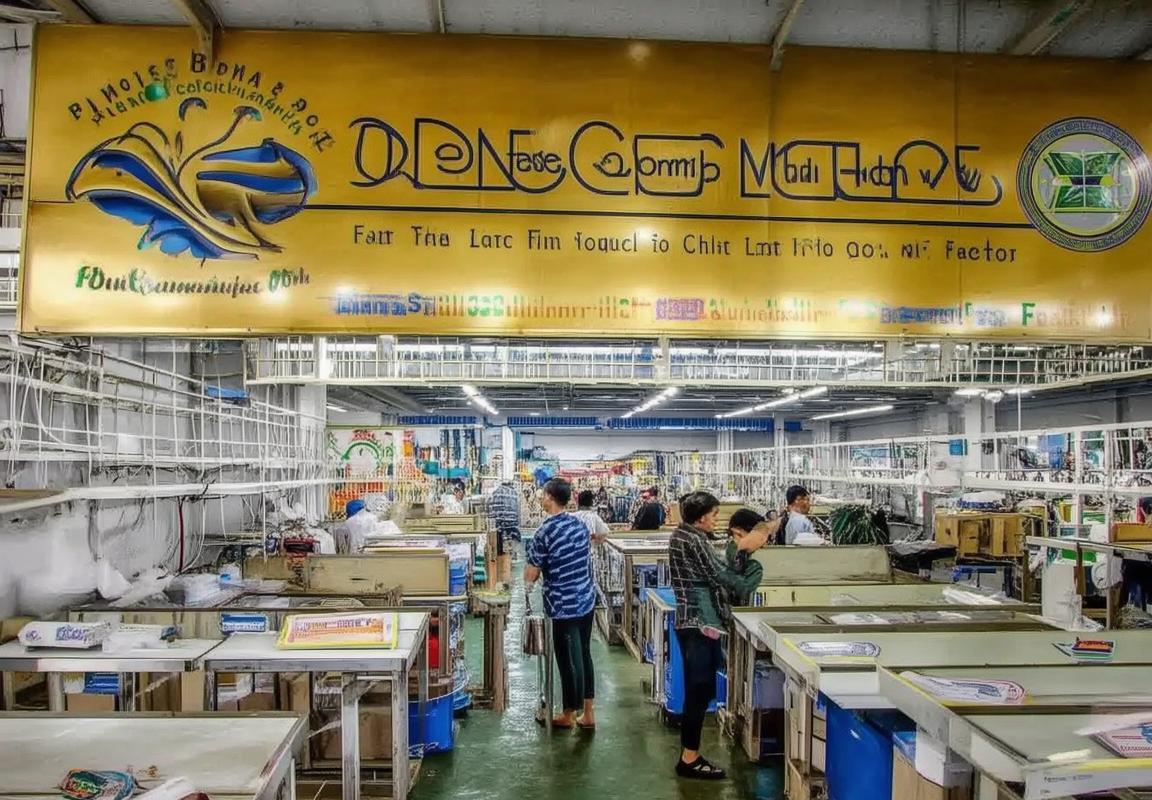
The Role of Kitchenware in Everyday Life
In our daily lives, kitchenware is not just a collection of utensils; it’s an essential component that enhances our culinary experiences and the overall functionality of our kitchens. From the simplest of tasks like stirring a pot to the most intricate cooking processes, kitchenware plays a pivotal role. Here’s how it intertwines with our everyday routines.
Cooking, whether it’s a quick breakfast or an elaborate dinner, relies heavily on the right tools. Pots and pans, for instance, are the backbone of any kitchen, designed to distribute heat evenly and hold the temperature necessary for cooking different types of dishes. The quality of these items can significantly impact the taste and texture of the food we prepare.
Utensils like spatulas, whisks, and tongs are our daily assistants in the kitchen. They not only make cooking more efficient but also protect us from burns and accidents. The ergonomic design of these tools ensures a comfortable grip, reducing hand fatigue, especially during long cooking sessions.
Cutting and chopping are integral to preparing a meal, and kitchenware such as knives and cutting boards can greatly influence the quality of our cooking. A sharp knife makes slicing and dicing tasks a breeze, while a well-crafted cutting board protects your countertops and maintains the integrity of your ingredients.
The right type of storage containers can extend the life of your leftovers. Air-tight containers prevent spoilage and maintain the freshness of stored food. They also help in organizing your pantry, making it easier to find ingredients when you need them.
Cooking methods vary widely, and each requires specific kitchenware. Cast iron skillets are perfect for searing steaks or slow-cooking stew, while non-stick pans excel in sautéing delicate vegetables. Baking requires bakeware like baking sheets, loaf pans, and molds, all of which are designed to ensure even baking and easy food release.
Beverage preparation is another aspect of everyday life that kitchenware influences. From the simple act of making coffee with a French press or a drip machine to brewing a fresh batch of tea with a teapot and infuser, the tools we use can enhance the flavor and enjoyment of our drinks.
Kitchenware also contributes to the aesthetic of our kitchens. Beautifully designed utensils and appliances can turn a utilitarian space into a cozy and inviting environment. They add personality to the room and can make the daily routine of cooking feel more enjoyable.
Cleaning is an integral part of kitchen life, and specialized tools make the task easier and more efficient. Dishwashers, scrubbers, and sponges are all designed to tackle the grease and grime that accumulate from cooking. The quality of these cleaning tools can impact how quickly and effectively we maintain our kitchen cleanliness.
In addition to its practical applications, kitchenware also holds cultural significance. Different cultures have specific traditions and methods for preparing food, often requiring unique kitchen tools. These items not only serve a functional purpose but also connect us to our heritage and traditions.
Finally, kitchenware is an investment. High-quality tools can last for years, providing years of service. They can also be handed down through generations, becoming family heirlooms that hold emotional and sentimental value.
In essence, kitchenware is more than just a collection of items in a drawer or on a shelf. It’s an extension of our daily lives, influencing everything from the taste of our food to the look of our kitchen. The right tools can make cooking more enjoyable, efficient, and even therapeutic. It’s worth investing in kitchenware that not only performs well but also complements the way we live and eat.
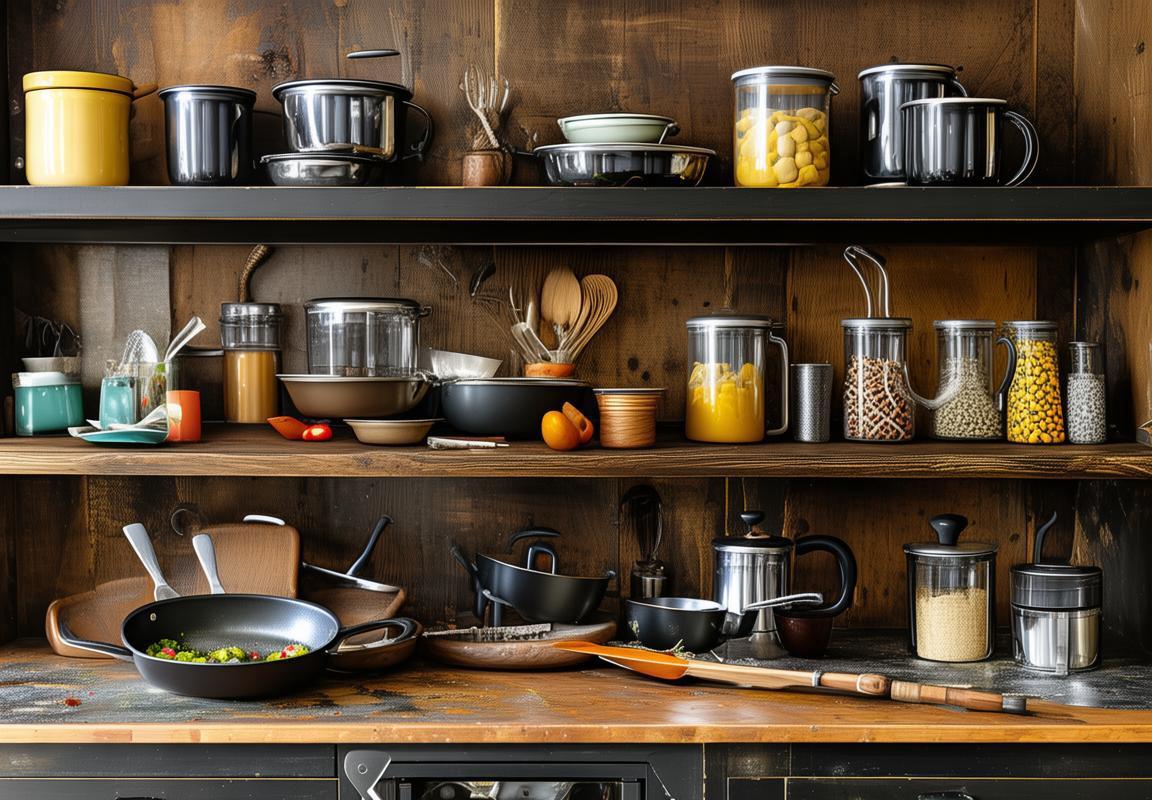
The BSCI Seal of Approval
The BSCI Seal of Approval is more than just a label; it’s a promise. It signifies a commitment to ethical practices, social responsibility, and environmental stewardship. Here’s a closer look at what this seal represents and why it matters.
It stands as a testament to compliance. The BSCI audit ensures that factories adhere to a comprehensive set of social compliance criteria. This includes fair wages, safe working conditions, and the absence of child labor. The seal is a visible sign that the factory has passed these stringent checks.
It reflects a culture of respect. The BSCI audit process is thorough, involving a detailed assessment of labor practices, health and safety measures, and the treatment of workers. The seal is a badge of honor that speaks to a factory’s dedication to fostering a respectful and inclusive work environment.
It guarantees transparency. The BSCI audit is not a one-time event; it requires ongoing monitoring and improvement. The seal is a promise that the factory is open about its operations and willing to be held accountable to a higher standard.
It speaks to the quality of the product. A factory with the BSCI Seal of Approval is not just about the workers; it’s about the products they produce. The seal suggests that the kitchenware has been crafted with care, using sustainable materials and environmentally friendly processes.
It’s a trust signal for consumers. In an era where ethical considerations are paramount, the BSCI Seal of Approval is a reassurance for buyers. It tells them that the kitchenware they’re purchasing is not just a tool for cooking, but a product that aligns with their values.
It encourages continuous improvement. The BSCI audit is not just about meeting standards; it’s about striving to exceed them. The seal is a symbol of a factory’s commitment to evolving and bettering its practices over time.
It supports fair trade. The BSCI audit includes a focus on fair trade practices, ensuring that suppliers are treated fairly and that the factory’s operations contribute positively to the local economy. The seal is a mark of a factory’s contribution to a more equitable global marketplace.
It’s a global recognition. The BSCI Seal of Approval is recognized worldwide, making it a universal symbol of quality and responsibility. It transcends language and cultural barriers, serving as a reliable indicator of a factory’s standards across borders.
It’s a reflection of community involvement. A BSCI audited factory is likely to be involved in community initiatives, supporting local development and sustainability. The seal is a sign that the factory is a good neighbor, contributing to the well-being of the community.
It’s a commitment to environmental sustainability. The BSCI audit includes environmental criteria, ensuring that the factory’s operations are environmentally responsible. The seal is a promise that the kitchenware has been produced with the planet in mind.
It’s a mark of innovation. Factories that earn the BSCI Seal of Approval often lead the way in innovative practices, whether it’s in their manufacturing processes or in their approach to social responsibility. The seal is a symbol of a factory’s forward-thinking approach.
It’s a symbol of resilience. The BSCI audit process is rigorous, and factories that pass it have demonstrated resilience in meeting these high standards. The seal is a testament to a factory’s ability to adapt and thrive in the face of challenges.
It’s a promise for the future. The BSCI Seal of Approval is not just a snapshot of current practices; it’s a promise of ongoing commitment to ethical and sustainable operations. It’s a beacon of hope for a better, more responsible future in the kitchenware industry.
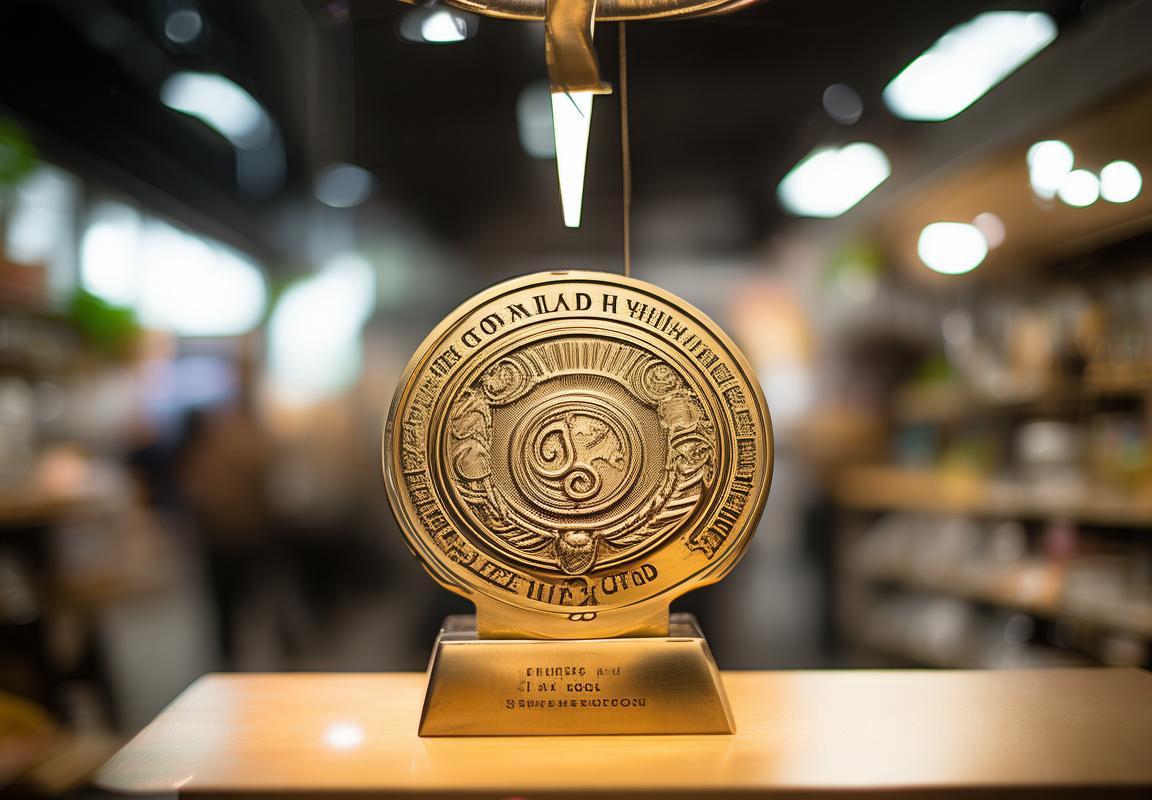
Benefits for Consumers
Purchasing products that have undergone a BSCI audit can offer a range of benefits to consumers, from ensuring ethical manufacturing practices to enhancing the quality and safety of the items they bring into their homes. Here’s a closer look at some of the advantages:
-
Ethical Production StandardsConsumers who choose BSCI audited products are supporting factories that adhere to rigorous ethical standards. This means workers are treated fairly, with safe working conditions, reasonable hours, and fair wages, which contributes to a more sustainable and responsible supply chain.
-
Quality AssuranceThe BSCI audit process includes a thorough examination of the factory’s production processes, ensuring that the products meet high-quality standards. This means consumers can expect durable, reliable items that are less likely to break or malfunction, saving them time and money in the long run.
-
Health and SafetyWith BSCI’s focus on safety, products that carry the BSCI seal are less likely to pose health risks. This is particularly important for kitchenware, where items come into contact with food and are subject to high temperatures and cleaning agents.
-
TransparencyThe BSCI audit provides transparency in the manufacturing process. Consumers can feel confident that the products they buy are not only ethically made but also produced in a way that is environmentally responsible and socially sustainable.
-
Environmental ResponsibilityFactories that are BSCI audited are also evaluated on their environmental impact. This means that kitchenware products are likely to be made from sustainable materials and with practices that minimize waste and pollution, contributing to a healthier planet.
-
Social ComplianceThe BSCI audit ensures that factories comply with local and international labor laws. This includes child labor prevention, non-discrimination, and the freedom of association for workers. Consumers who prioritize social justice can feel good about their purchases.
-
Consumer TrustThe BSCI seal of approval acts as a trust mark, signaling to consumers that the product has been produced by a company that cares about its impact on people and the planet. This can be particularly reassuring for those who are conscious of the ethical implications of their buying decisions.
-
LongevityKitchenware that passes the BSCI audit is likely to be of higher quality, which often translates to longer-lasting products. This means fewer replacements and a lower overall cost of ownership for consumers.
-
Access to InformationConsumers who buy BSCI audited products have access to detailed reports about the audit process and the factory’s compliance with BSCI standards. This information can be used to make more informed purchasing decisions.
-
Market DifferentiationFor manufacturers, obtaining the BSCI seal can differentiate their products in a crowded market. Consumers who are looking for products that stand out for their ethical and quality credentials are more likely to choose those with the BSCI mark.
-
Support for Local CommunitiesBy purchasing BSCI audited products, consumers are indirectly supporting local communities where the factories are located. This can help to stimulate economic growth and improve living conditions in these areas.
-
Peace of MindThe BSCI seal provides peace of mind to consumers who are concerned about the ethical sourcing of their kitchenware. Knowing that their purchase aligns with their values can be a significant factor in their satisfaction with the product.
-
Encouragement for Continuous ImprovementThe BSCI audit is not a one-time event; it’s part of an ongoing commitment to improvement. Factories are required to undergo regular audits to maintain their BSCI certification, which encourages them to continually enhance their practices.
-
Global RecognitionThe BSCI standard is recognized worldwide, which means that consumers can trust the seal regardless of where they are purchasing their kitchenware. This global recognition adds to the credibility of the BSCI audit process.
-
Economic EmpowermentBy supporting factories that are BSCI audited, consumers are also supporting the economic empowerment of workers. Fair wages and good working conditions contribute to the overall well-being and financial stability of the workforce.
In summary, the benefits of purchasing BSCI audited kitchenware are multifaceted, encompassing ethical considerations, quality assurance, health and safety, environmental responsibility, and the ability to make informed choices that align with personal values.

The Process: From Factory to Store
The intricate journey of kitchenware from the factory floor to the store shelves is a testament to precision, quality control, and the commitment to customer satisfaction. Here’s a glimpse into this process, from raw materials to the finished product.
Materials SourcingWe begin with the sourcing of materials. Quality is paramount, so suppliers must meet strict criteria. These materials range from metals for cookware to non-porous ceramics for bakeware. The selection process involves assessing the durability, heat resistance, and overall safety of these components.
Design and PrototypingOnce the materials are chosen, the design phase kicks in. Engineers and designers collaborate to create products that are not only aesthetically pleasing but also functional. Prototypes are then crafted, allowing for a hands-on evaluation of the design. This step is crucial for identifying any potential issues before mass production.
Quality Control at the FactoryThroughout the production process, quality control is a constant. Workers inspect each piece to ensure it meets the required standards. This includes checking for uniformity in size, shape, and finish. Advanced machinery and skilled labor ensure that every product is a testament to precision engineering.
Manufacturing TechniquesThe manufacturing techniques employed can vary greatly depending on the type of kitchenware. For instance, metal cookware might go through stamping, welding, and polishing, while ceramic pieces may involve shaping, glazing, and firing. Each technique is executed with precision to ensure the product’s longevity and performance.
Assembly and FinishingAfter the individual components are produced, they are assembled. This could mean screwing parts together, gluing them, or using adhesives. Once assembled, the kitchenware is given a final finish, which could involve polishing, painting, or applying protective coatings. This stage is critical in ensuring the product’s appearance and durability.
Testing and CertificationBefore any product leaves the factory, it must undergo rigorous testing. This includes drop tests, heat resistance tests, and durability checks. Only once these tests are passed does the kitchenware receive its certification. This certification is often a mark of approval from recognized bodies, like the BSCI, which ensures the product meets international standards.
PackagingPackaging is as important as the product itself. It not only protects the kitchenware during transit but also serves as the first impression for the consumer. Packaging must be designed to withstand shipping conditions and be visually appealing to attract buyers.
Distribution and LogisticsThe logistics of getting the kitchenware from the factory to the store is a complex process. It involves coordinating with distributors, shipping companies, and retailers. Efficient supply chain management ensures that the products are available when and where consumers expect to find them.
In-Store PresentationOnce the kitchenware reaches the store, it’s time to present it to the consumer. This includes arranging the products on shelves in an attractive and informative manner. Store employees are trained to assist customers, answer questions, and provide the necessary information about the product’s features and benefits.
Customer Feedback and ImprovementThe process doesn’t end once the kitchenware is sold. Customer feedback is invaluable for understanding how the product performs in real-world scenarios. This feedback is used to make improvements and refine future products.
The journey from factory to store is a meticulous one, with each step carefully designed to ensure that the kitchenware reaching the consumer is of the highest quality and safety standards. It’s a journey that reflects the dedication of manufacturers to excellence in product development and customer satisfaction.
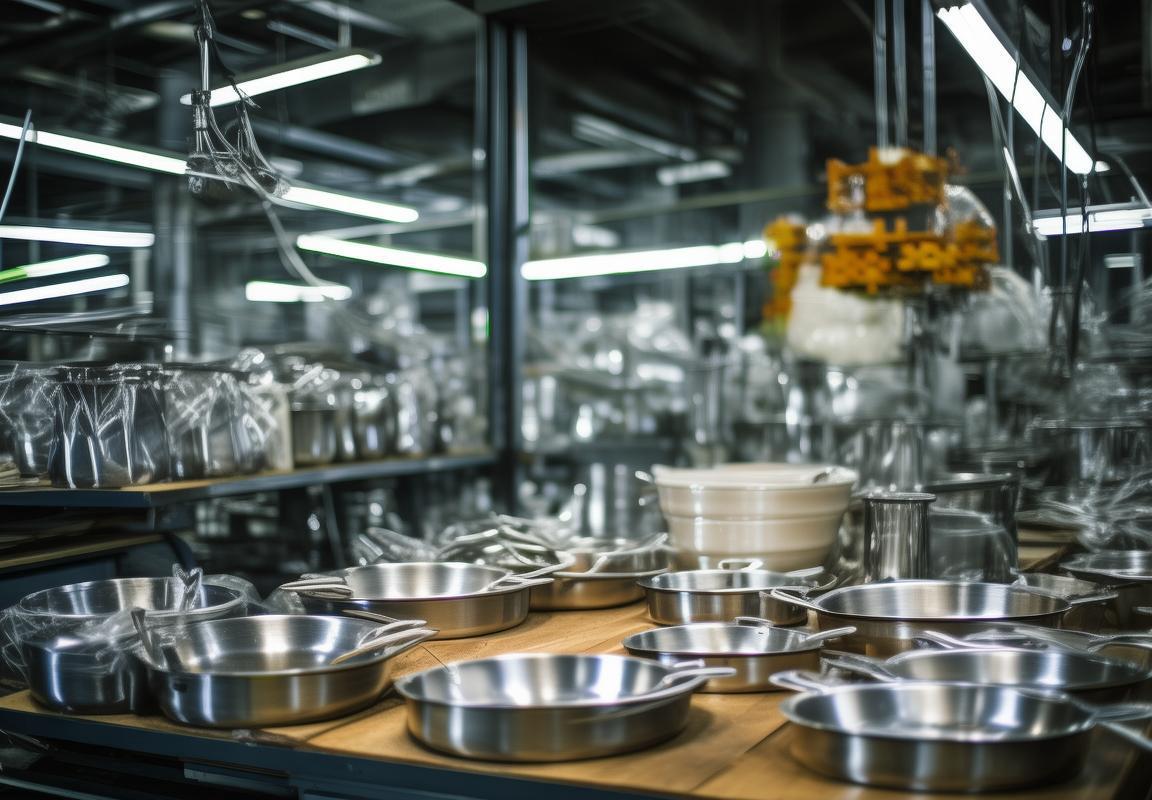
Testimonials and Success Stories
In the world of kitchenware, there are countless stories of satisfied customers who have found joy and convenience in the everyday tools they use. Here are a few testimonials and success stories that highlight the positive impact of high-quality kitchenware on people’s lives:
“I’ve been using this set of cookware for a couple of months now, and I’m absolutely thrilled with the results. The non-stick surface is a game-changer, making cooking a breeze, and the durability is impressive. I’ve dropped it a few times, and it’s still going strong. It’s worth every penny!”
“I was skeptical at first about buying a set of ceramic dishes, but now I’m a convert. The vibrant colors are beautiful, and the dishes are so easy to clean. I love setting the table with them, and they’re a hit with guests. Plus, they’re microwave and oven safe, which is a huge plus for me.”
“I can’t recommend this blender enough. It’s powerful, easy to use, and the design is sleek and modern. I’ve used it for everything from smoothies to soups, and it’s never let me down. The blades are sharp, and the container is sturdy, which is a big deal for me.”
“I was tired of my old kitchen gadgets taking up space and not working properly. That’s when I invested in a set of kitchenware that promised to simplify my cooking routine. The pots and pans are the perfect size for my stove, and the cutting board is a breeze to clean. It’s like I’ve had a complete kitchen overhaul without the hassle.”
“Every time I use my cast iron skillet, I’m reminded of the timeless quality of this product. It heats evenly, holds heat well, and is a joy to cook with. I’ve used it for everything from pancakes to stir-fries, and it’s never let me down. It’s an investment that pays off every single time.”
“I bought this set of knives as a gift for my sister, and she absolutely loves them. The handles are comfortable to hold, and the blades are sharp enough to handle any task in the kitchen. She’s even started using them for everyday cooking, and she can’t stop talking about how much they’ve improved her cooking experience.”
“I was on the fence about getting a new set of dishes, but I took a chance, and I’m so glad I did. The dishes are not only stylish but also practical. They’re oven-safe, which means I can finish cooking in the oven and serve straight from the dish. It’s a time-saver and adds a touch of elegance to every meal.”
“Living in a small kitchen can be challenging, but this compact set of kitchenware has made my life so much easier. Everything fits perfectly on my countertop, and the design is space-saving without compromising on quality. It’s like having a mini kitchen in a jar!”
These testimonials and success stories are a testament to the power of quality kitchenware in enhancing daily life. From the joy of cooking a perfect meal to the convenience of easy-to-use appliances, the right kitchenware can make all the difference.

The Future of Kitchenware and BSCI
In the ever-evolving world of kitchenware, it’s fascinating to consider the future landscape, especially with the presence of BSCI audits. The blend of innovation, consumer demand, and ethical manufacturing practices promises a dynamic scene. Here’s a glimpse into the potential future:
Materials and InnovationMaterials used in kitchenware are advancing rapidly. From eco-friendly, biodegradable plastics to advanced metals that resist corrosion, the possibilities are vast. Imagine a future where kitchenware not only performs better but also contributes to a healthier planet.
Technology IntegrationSmart kitchenware isn’t just a novelty; it’s becoming a necessity. Appliances that can sync with smartphones, provide health insights, or even learn your cooking habits are on the horizon. The BSCI audit might soon include standards for technology integration to ensure these innovations are developed ethically.
Ethical SourcingThe future of kitchenware hinges on the commitment to ethical sourcing. With BSCI’s focus on labor rights and environmental practices, we can expect a trend where transparency in supply chains becomes the norm. Consumers will demand products that are free from child labor and environmental degradation.
Sustainability and Circular EconomyAs sustainability gains traction, kitchenware will likely follow suit. Manufacturers might adopt a circular economy model, where products are designed for durability, repairability, and recycling. This approach not only reduces waste but also aligns with the values of BSCI audited factories.
Global CollaborationThe global nature of the kitchenware industry means that collaboration will be key in shaping its future. BSCI audited factories will likely form alliances to share best practices, develop new standards, and create a more cohesive global approach to kitchenware production.
Consumer EducationIn the future, kitchenware buyers might be more educated than ever. With BSCI’s seal of approval, consumers will have a clear indicator of quality and ethical manufacturing. This could lead to a more informed market where customers actively seek out BSCI audited products.
Health and SafetyThe future kitchenware might prioritize health and safety over everything else. With an increased awareness of food safety and the potential health risks associated with kitchenware, we could see products that are not only safe to use but also designed to enhance our health.
Customization and PersonalizationThe rise of customization in the kitchenware market is likely to continue. Thanks to advancements in technology, consumers might be able to choose materials, designs, and even functionality based on their specific needs. BSCI’s role could expand to include standards for customization processes.
Global Challenges and SolutionsAs the world faces new challenges, such as climate change and economic disparities, the kitchenware industry will need to adapt. BSCI audited factories might play a pivotal role in developing solutions that are both sustainable and equitable.
Innovation in DistributionThe way kitchenware is distributed could also change. With the rise of e-commerce and direct-to-consumer models, manufacturers might find new ways to connect with customers. This could lead to a more efficient supply chain and potentially more BSCI compliant practices.
The Intersection of Art and FunctionalityIn the future, kitchenware might not just be a tool but a piece of art. Designers and manufacturers will continue to push boundaries, blending aesthetic appeal with functionality. BSCI’s influence could extend to ensuring that these designs are produced ethically.
Longevity and ReplacementThe concept of longevity in kitchenware will become more prominent. Instead of constantly buying new items, consumers might be encouraged to repair and replace parts of their kitchenware, reducing waste and aligning with BSCI’s values of sustainability.
The future of kitchenware, under the guidance of BSCI and its ethical standards, looks promising. It’s a future where products are not just a necessity but a statement about our values and commitment to a better world.

Final Thoughts
In reflecting on the journey of kitchenware and the role of BSCI, one can’t help but ponder the intricate dance between quality, sustainability, and consumer satisfaction. The path from a factory to the store shelves is not just a series of steps but a narrative filled with dedication, innovation, and the relentless pursuit of excellence.
The journey begins with raw materials, carefully selected for their quality and sustainability. These materials are transformed into the very essence of kitchenware, each piece crafted with precision and care. The manufacturing process, a blend of traditional techniques and cutting-edge technology, ensures that every item not only meets but exceeds the expectations of the end-user.
As these items move through the factory, they are subjected to rigorous quality control measures. Each product is checked for durability, safety, and functionality, ensuring that when it finally leaves the factory, it is a testament to the brand’s commitment to its customers. The BSCI audit plays a pivotal role here, acting as a beacon of trust and assurance that the product adheres to ethical and social standards.
Once the kitchenware is deemed fit for market, it is packaged with an eye for both aesthetics and practicality. The packaging not only protects the product during transit but also communicates the brand’s values and the story behind the product. It’s a silent promise to the consumer that what they hold in their hands is not just an object, but a piece of craftsmanship.
In the store, the product takes center stage, surrounded by its peers. The consumer, walking through the aisles, is drawn to the BSCI seal of approval, a symbol that speaks volumes about the brand’s integrity. The ease of use, the quality of the materials, and the overall design of the kitchenware all contribute to the customer’s decision-making process.
But the journey doesn’t end at the point of sale. The real test comes in the hands of the consumer. Testimonials and success stories begin to emerge, each one a testament to the product’s reliability and the brand’s dedication to customer satisfaction. These stories, shared through word of mouth and online platforms, become the lifeblood of the brand’s reputation.
Looking ahead, the future of kitchenware seems to be intertwined with the evolution of consumer needs and technological advancements. As lifestyles change and environmental concerns grow, kitchenware is likely to become even more versatile, sustainable, and user-friendly. Innovations in materials, design, and functionality will continue to shape the landscape, offering consumers a wider array of choices that cater to their unique tastes and needs.
Moreover, the role of BSCI in this future is undeniable. As a standard that promotes ethical manufacturing, BSCI will likely become an even more integral part of the kitchenware industry. Brands that embrace BSCI will not only gain a competitive edge but also foster a sense of trust and loyalty among consumers who value social responsibility.
In the end, it’s about the people. The workers in the factories, the designers in the offices, the salespeople in the stores, and the consumers in their homes. Each step of the journey is a reflection of the collective effort to create something that not only serves a purpose but also brings joy and convenience to everyday life.
The kitchenware industry, with its BSCI audited factories, is a microcosm of the larger global community. It’s a place where quality, sustainability, and social responsibility converge, creating a ripple effect that touches the lives of many. As we reflect on the past and look to the future, it’s clear that the path is paved with the hopes, dreams, and hard work of countless individuals, all striving to make a difference in their own small way.